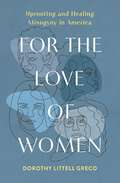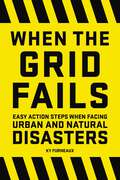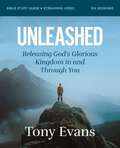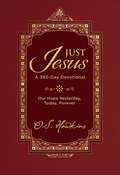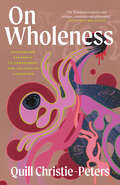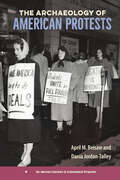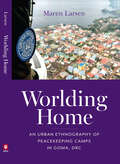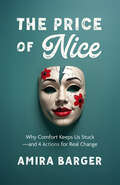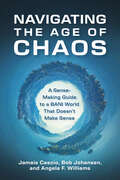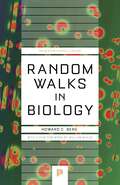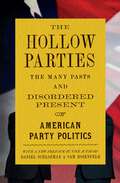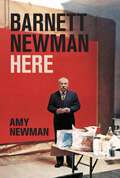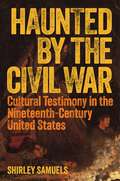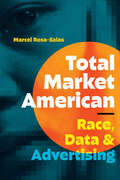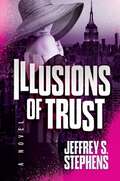- Table View
- List View
Sonora: A Novel
by Jenni L Walsh&“Sonora&’s story is about not giving up in the face of setbacks. An inspirational tale.&” —Booklist"This one's for the horse girls, the girls who fell in love with Wild Hearts Can't Be Broken and hoped someday they'd be like the fearless, determined, strong Sonora Carver whose love and belief in her horses made her an icon." --Joy Callaway, international bestselling authorInspired by a true story of one of the first female horse divers, Sonora explores a world of daring feats and extraordinary adventures set in the heyday of the American carnival scene.Sonora Webster is penniless but plucky, and despite the looming Great Depression, she follows her wanderlust, answering an advert to dive with horses. Little does she know that she is about to be thrust into a world teeming with danger, excitement, and fierce competition.As Sonora delves into the cutthroat world of show business, complete with trapeze aerial acts and juggling bears, her undeniable talent and unwavering dedication propel her into the limelight, making her a sensation, and after marrying the show runner, her entire life becomes their act and their horses. But she soon learns that a diver--and her horse--are only as good as their last show, a show some are hellbent on shutting down. When a tragic accident changes her life forever, can Sonora muster the courage to climb the forty-five-foot tower and dive again, risking her life to save the show and their horses from falling into the wrong hands?In Sonora, Jenni L. Walsh vividly captures the spirit of a brave woman who defied societal norms to follow her dreams, diving into the unknown with courage and resilience.
For the Love of Women: Uprooting and Healing Misogyny in America
by Dorothy Littell GrecoIf we hope to fight and eventually heal from misogyny, we must first be able to identify and understand it.Despite the undeniable progress for women and girls in the 20th and 21st centuries, misogyny is still alive and well in today's culture—often in ways that are more subtle and more insidious than the outright sexism of the past, and in spaces that we overlook or excuse as normative.Misogyny has shape-shifted through the generations while maintaining a consistent through-line: it blinds individuals and cultures from seeing women as equal image-bearers, fosters hierarchies rather than partnerships, disdains vulnerability, and prevents all of us—women and men alike—from fully thriving. In For the Love of Women Dorothy Littell Greco draws on in-depth research, interviews, biblical concepts, and vulnerable personal experience to explore how misogyny continues to impact six spheres of contemporary culture:HealthcareGovernmentThe workplaceMedia and entertainmentThe churchIntimate relationships While recent movements succeeded in raising consciousness and initiating important changes connected to misogynistic practices, alarming trends and rhetoric are on the rise in America today. We still have a lot of work to do—and the battle is more urgent than ever.Like other deeply rooted, systemic injustices, misogyny is neither morally neutral nor random. It's pernicious and calculated. For the Love of Women is for anyone who wants to educate, inspire, and empower themselves and women collectively to affect real change for everyone's benefit.
Let In the Light: 50 Devotions to Confidently Know God Is Good and Guiding Your Steps
by Proverbs 31 MinistriesDo you need light for your path and hope for the dark times? No matter what you face today, it's possible to encounter the power of God's light even in dark and difficult seasons. From the Proverbs 31 Ministry team, including Joel Mudamalle, Alicia Britt Chole, and Asheritah Ciuciu (and many more!) comes Let In the Light: 50 Devotions to Confidently Know God is Good and Guiding Your Steps, a devotional to lead you into the light of God's Word and presence.Friend, we were never meant to walk in darkness. But no matter how dark the world seems, the good news is that even in the darkest places, God still pursues us. There is no place too dark, because wherever God is, light is there too. And you can be sure there will be enough light for your next step.This timeless message offers profound insights into the eternal light that shines in our darkness. In this beautiful, full-color devotional, rich with light imagery, you will find:An encouraging foreword from Lysa TerKeurst where she shares that it is possible to encounter God's light, even when life feels shrouded in darknessA relevant Bible verse for every entryDevotions from Proverbs 31 writers, including bestselling authors such as Joel Mudamalle, Alicia Britt Chole, Asheritah Ciuciu, and moreBible teaching that leads you from creation to the arrival of Jesus, the Light of the World, and to our hope eternal where there will be no darknessA practical and relevant message to help you cling to God's Word and step into the light When you have walked in dark places for a long time, it can seem that day will never come. But God has promised that He will not abandon His people. Though we may not see clearly now, God will lead us in new ways, on paths we haven't been before, making rough places level and dark places light. This book makes a wonderful gift for anyone who is:Seeking a closer walk with Jesus and encouragement to spend more time with God&’s WordFacing a dark or difficult situation that needs hopeDiving deeper into the biblical passages of light, doing a study for advent or lent, or studying with a group of friendsSearching for daily reminders that God has ultimately defeated darkness and that we can live in the light of eternal redemption and be a light to those around us Whatever you're facing today, Let In the Light reminds us that Jesus is the light, and in Him, darkness will be defeated.
When the Grid Fails: Easy Action Steps When Facing Urban and Natural Disasters
by Ky FurneauxPrepare your home and family for any catastrophe and know what to do when disaster strikes.Guide your family through life-threatening situations when they hit home with this survival guide. Learn techniques and strategies for fortifying your home against any crisis. From a downed power line to staying safe during a hurricane or being trapped in your home in a snowstorm, you&’ll learn life-saving strategies and self-sufficient living. With the right tools and information, you can survive life&’s most unpredictable circumstances. Survival expert Ky Furneaux (featured on Discovery&’s Naked and Afraid) establishes easy action steps so your family has a step-by-step plan when things go haywire. Whether it&’s environmental disaster, social upheaval, civil unrest, war, or an economic breakdown, with this guide you can confidently navigate any crisis.Learn practical preparations and smart responses to all kinds of survival situations, including:How to find and sterilize waterHow to keep warm if the heating cuts out, and staying cool in heat waves without A.C.How to safely store food and water for weeks and months on endFirst-aid instructions and treating injuries in an emergencyAlternative cooking techniques when conventional methods are unavailableHow to prepare for a fire, hurricane, tornado, flood, or earthquakeBe self-reliant and give yourself peace of mind with the tools you need to survive even in long emergencies. Take the initiative with When the Grid Fails and be prepared for any urban crisis.
Unleashed Bible Study Guide plus Streaming Video: Releasing God's Glorious Kingdom in and Through You
by Dr. Tony EvansLearn how to boldly represent God's kingdom in your everyday life and be challenged to embrace your role as an ambassador for Christ.Are you ready to experience God's power in every area of your life? Break free from frustration, defeat, and spiritual stagnation with this Bible study, Unleashed, by Dr. Tony Evans. You'll learn how to live under God's kingdom authority and unlock the power, purpose, and peace He's already made available to you. You are called to represent God's kingdom here on earth through your words, actions, and faith.In this study you will learn how to:Activate the Holy Spirit's power to overcome obstacles and live confidentlyDeepen your understanding of Scripture and align your faith with God's truthEmbrace your identity in God's kingdom as you live out your faithPerfect for individual study, small groups, or in a church setting, Unleashed is packed with biblical insights, practical steps, and inspiring stories to help you live the life God created you for.You'll experience God like never before and see Him release His power in your life. Get ready to be unleashed!This study guide has everything you need for a full Bible study experience, including:Video notes and comprehensive structure for group discussion timePersonal study for deeper reflection between sessionsA guide to best practices for leading a groupAn individual access code to stream all video sessions online. (You don't need to buy a DVD!)Streaming video access included. Access code subject to expiration after 12/31/2030. Code may be redeemed only by the recipient of this package. Code may not be transferred or sold separately from this package. Internet connection required. Void where prohibited, taxed, or restricted by law. Additional offer details inside.
Just Jesus: Our Hope Yesterday, Today, Forever (A 365-Day Devotional)
by O. S. HawkinsFind true contentment in your life when you fix your focus on just Jesus.Do you long for more closeness in your daily walk with Christ?In today's world, it is so easy to lose focus and lose heart. Responsibilities fill our days—work, family, finances, and more—and the to-do list can seem never-ending. We are pulled in a million directions: It is Jesus only who matters in our lives and can give us true purpose and hope.Just Jesus is a 365-day devotional that reminds you everything points to Jesus alone. Trusted pastor and teacher O. S. Hawkins draws on decades of ministry to remind you to turn your eyes to the true Source of all hope and peace.This life-changing, year-long devotional includes:365 Daily Devotions: Start each day with a fresh perspective, guided by daily readings that will inspire, uplift, and challenge you in your spiritual walk.Scriptural Insights: Delve into the timeless wisdom of the Bible as you explore carefully selected verses that relate to the day's theme.Practical Application: Each devotion includes practical steps to help you live out your faith with purpose and intention. Just Jesus makes a perfect gift for Christmas, New Year's, Father's Day, graduation, or other special occasions. With a luxurious Leathersoft cover, the durable yet soft feel will look attractive on your nightstand, coffee table, or wherever in your home you choose to keep this treasured volume.As you nurture your relationship with Jesus, be reminded that it is in Him alone that we find true purpose, peace, and fulfillment.
On Wholeness: Anishinaabe Pathways to Embodiment and Collective Liberation
by Quill Christie-PetersA brilliant exploration embodied wholeness as a pathway to our collective liberation Through reflections on childbirth, parenting, creative practice, and expansive responsibility, Anishinaabe visual artist Quill Christie-Peters explores how reconnecting with the body can be an act of resistance and healing. She shows that wholeness—despite pain and displacement—is not just possible but essential for liberation, not only for Indigenous people but for all of us. In poetic and raw storytelling, Quill shares her own experiences of gendered violence and her father’s survival of residential school, revealing how colonialism disconnects us from ourselves. Yet, through an Anishinaabe lens, the body is more than just flesh—it extends to ancestors, homelands, spirit relations, and animal kin. This fierce and enlightening book reimagines the way we understand settler colonialism—through the body itself. On Wholeness takes us on a journey that begins before birth, in a realm where ancestors and spirits swirl like smoke in the great beyond.
The Serious World
by Laura ReadThe Serious World is a collection of epistolary poems written to Sylvia Plath about depression, therapy, friendship, family, and the struggling life of an artist. With humor, sensitivity, and deep reflection, Laura Read explores many themes including mental health, suicide, loss, feminism, motherhood, and aging, offering a fresh view of the world as seen through the feminist poet’s searching spyglass. Reaching back into history to talk with Plath and other historical figures who have suffered and wrote about their suffering, Read tries to make sense of what it’s like to be alive and suffering now. These deeply felt poems include language from Plath’s The Bell Jar and poems about Marguerite Duras and Simone de Beauvoir. Other strange bedfellows from pop culture also make appearances, among them Kenny Rogers, Dr. Seuss, Kurt Cobain, and Courtney Love.
Miami's Art Boom: From Local Vision to International Presence
by Elisa TurnerDiscover how Miami’s local art community transformed the city into a hub of global artistic exchangeStep into the vibrant heartbeat of Miami’s art scene during a transformative period in Miami’s Art Boom. Award-winning art critic Elisa Turner presents over 100 of her best profiles, reviews, and stories to capture the evolution of Miami’s visual arts community before and after the inaugural Art Basel Miami Beach in 2002. This book reveals how a constellation of visionary artists, curators, galleries, and museums ignited a cultural revolution that propelled the region onto the international stage.Through four chronological sections and a richly contextualizing introduction, readers are invited to witness a pivotal era when creative pioneers like José Bedia, Carlos Betancourt, María Brito, Gary L. Moore, Eugenia Vargas-Pereira, Edouard Duval-Carrié, María Martínez-Cañas, and many others redefined artistic boundaries. Their individual stories are artfully interwoven with the broader narrative of a community energized by cross-cultural exchange. As Miami transformed into a flourishing hub of global artistry amid burgeoning support from state and private funders, the groundwork was laid for Art Basel Miami Beach, a landmark event whose explosive impact continues to reverberate.Miami’s Art Boom is more than a history—it is a vibrant cultural artifact that not only defies myths about Miami’s artistic roots but also celebrates the spirit of innovation and diversity. This detailed, lively collection is an essential read for art students and scholars, professionals, and anyone passionate about the power of creativity. Embrace the story of Miami’s rise from the foundational work of local visionaries to the exhilarating exchange of the international art world and experience an inspirational journey.
The Archaeology of American Protests (The American Experience in Archaeological Perspective)
by April M. Beisaw Dania Jordan-TalleyExploring the history of American protest movements through an archaeological perspective, connecting protests of the past with resistance today In this book, April Beisaw and Dania Jordan-Talley use historical and contemporary archaeology to explore the past 400 years of American protest history. The Archaeology of American Protests reveals how ideals such as equality, prosperity, and self-determination have been challenged and negotiated through protests, connecting today’s protest movements to those that came long before. Beisaw and Jordan-Talley examine materials excavated from the sites of protests, as well as photographs, graffiti, banners, barriers, and weaponry used to suppress protesters. The book features case studies of movements for Indigenous rights, women’s rights, environmental activism, and other causes. The authors trace connections between historical protests such as Bacon’s Rebellion of 1676, the Pueblo Revolt of 1680, and the Boston Tea Party of 1773 to recent protests including Occupy Wall Street, Black Lives Matter, and the Standing Rock Dakota Access Pipeline resistance.Through the perspectives of activist archaeology, community-based archaeology, and social justice, this book shows how protests are integral to the American experience. It demonstrates how communal and public actions aimed at changing the status quo occur in moments of opportunity, while decades later these protests can take on new meanings and be seen in retrospect as moments of pride. Documenting protest sites and material culture can preserve the heritage of social activism, set realistic expectations for social change, and inspire actions for better futures.
Leaf Town Forever
by Kathleen Rooney Beth RooneyThe true story of a Midwestern &“town&” created with leaves, sticks, and children&’s imaginations Leaf Town suddenly springs up. One day the clearing outside the school is empty, and the next it&’s a bustling town complete with a hotel, shop, and mayor. Children gather and find treasures everywhere: feathers, acorns, lost rings, an old medal, and plenty of leaves and pine needles. They even uncover a silver skeleton key in the muddy banks of a nearby creek and proclaim it the heart of Leaf Town. As the town grows, it attracts the attention of the kids up the street, and a colossal fight threatens to destroy everything that was built. But the heart of Leaf Town is saved, and the kids rally to rebuild their city together, expanding to welcome the neighboring kids as well as all sorts of birds and animals. They hang a sign, Leaf Town Forever, and pass the key to the next generation of children who will look after their beloved town. Based on a true story, Leaf Town Forever is the gentle tale of a town created by children with vivid imaginations. The timeless and universal saga, written in haiku, reminds both kids and adults that some dreams are worth protecting. Unfurling over the cycle of seasons, this is the story of an enchanting place full of tenacity and hope, creativity and fun—a connection to the natural world within reach for us all if we unite to make and maintain it.
Queer Kids and Social Violence: The Limits of Bullying
by Melissa J. Smith Elizabethe PayneChallenging the myths about LGBTQ+ kids and bullying: what it means to protect queer kids in schools Conversations around LGBTQ+ kids in school have become dominated by the subject of bullying. Although this may be due to good-faith efforts to protect vulnerable students, Queer Kids and Social Violence demonstrates that a focus on bullying as acts of individual peer aggression fails to address the social norms that perpetuate the violence. Considering the broader contexts of bullying, this volume offers ways to engage with queer youth that are both more humanizing and more likely to create sustainable change. Essays by leading international scholars analyze how bullying discourse shapes policy and practice, using in-depth case studies, research findings, and examinations of political policy to guide readers through the various forms of violence, identity regulation, and identity erasure in schools. Offering conversation-shifting interventions to respond to a difficult and frightening political moment for LGBTQ+ youth, Queer Kids and Social Violence is a rounded, empathetic picture that does queer youth justice and points the way toward safer schools for all. Contributors: Ana María Amigo-Ventureira, Durell M. Callier, Cristyn Davies, Renée DePalma, Tania Ferfolja, Jessica Fields, Elliot Fonarev, Jen Gilbert, Tristan Gleason, Dominique C. Hill, Angela Ingram, Laurie Gutmann Kahn, Cris Mayo, Mollie McQuillan, Aoife Neary, C.J. Pascoe, Victoria Rawlings, EJ Renold, Jessica Ringrose, Kerry H. Robinson, Dorte Marie Søndergaard, Cris Townley, Jacqueline Ullman, Boni Wozolek. Retail e-book files for this title are screen-reader friendly with images accompanied by short alt text and/or extended descriptions.
On the Eve of the Cybercultural Revolution: Black Power and Capitalism in the 1960s
by Brian BartellUncovering the Black Power movement&’s contributions to theorizing the politics of automation On the Eve of the Cybercultural Revolution offers a comprehensive look at the Black Power movement&’s theoretical work and insights into the entanglement of capitalism, technology, and racism. Drawing upon James and Grace Lee Boggs&’s expanded notion of the cybercultural era, Brian Bartell demonstrates how a range of artists, writers, and activists from the 1960s prefigured the wider discourse around automation and made it a central concern of their politics. Rather than reducing automation to an isolated technical phenomenon, theorists of the Black radical tradition identified its important historical antecedents in colonialism and plantation slavery, emphasizing how the emerging cyberculture joined with issues such as the reorganization of labor, ecological harm, and racial inequality. Examining the work of Martin Luther King Jr., Noah Purifoy, the Black Panthers, and others, On the Eve of the Cybercultural Revolution outlines the new forms of social reproduction conceived outside of the dominant structures of racial capitalism. Bartell synthesizes a wide range of source texts, including political speeches, literature, and activist archives, to show how the Black Power movement sought to create a postscarcity, more-than-capitalist economy. By shedding light on the movement&’s underexplored engagement with theories of technology, he provides a crucial key to understanding the historical dynamics responsible for our technocapitalist present. Retail e-book files for this title are screen-reader friendly.
Worlding Home: An Urban Ethnography of Peacekeeping Camps in Goma, DRC (Framing the Global)
by Maren LarsenWorlding Home interrogates the social, spatial, and architectural lifeworlds of United Nations (UN) peacekeepers accommodated in contingent camps throughout Goma, the capital of North Kivu in the Democratic Republic of the Congo. From 2017 to 2019, more than twenty of these camps existed in and around the city, operating as sites of global outreach even as they generated new ways of being at home for peacekeepers and the peace-kept population.Through multisited ethnography and deep engagement with anthropological and urban theory, author Maren Larsen explores the entanglements of camp and city. Pushing against readings of Goma's peacekeeping camps as either more privileged enclaves or as outliers in camp studies when compared to refugee camps, Larsen argues for an understanding of "camp" as a process and practice. Between dwelling and journeying and "here" and "there," the everyday lives and embodied practices of Goma's peacekeepers and Congolese civilians co-construct a "city as elsewhere" in which camping is a vital urban practice.By offering a more expansive understanding of how UN peacekeeping camps fit within Goma's urban fabric, Worlding Home reveals the intertwined sociospatial processes of making a home, building a city, and reimagining the world.
The Price of Nice: Why Comfort Keeps Us Stuck—and 4 Actions for Real Change
by Amira Barger“What’s wrong with nice?!” A simple and powerful question. It demands we interrogate the unspoken rules that shape our lives, often without our realizing it.“It costs nothing to be nice!” What a travesty of logic. Niceness is not free—it comes at a steep price. It’s a velvet glove over an iron fist, stifling dissent, prioritizing comfort over progress, and conditioning us to accept the status quo. Niceness is one of the most insidious social constructs, keeping us compliant, silent, and complicit in inequity. If we don’t question it, we stay exactly where power wants us—agreeable, easy to manage, and stuck.The Price of Nice is about breaking free. Amira Barger deconstructs our cultural obsession with niceness, exposes its hidden costs, and offers a practical framework for real change. With sharp analysis and personal insight, she helps readers disrupt the narratives that keep them stuck and reclaim their power.Guided by four dimensions rooted in social psychology—think, feel, do, revisit—this book offers immediate, adaptable practices for creating change. Because breaking free isn’t only what you know—it’s what you do next.If you're tired of “good enough,” this book will challenge you, change you, and call you to more.
Navigating the Age of Chaos: A Sense-Making Guide to a BANI World That Doesn't Make Sense
by Bob Johansen Jamais Cascio Angela F. WilliamsThe future is uncertain, and yet we must act. This groundbreaking framework helps leaders transform chaos into clarity, build organizational resilience, and create positive change in turbulent times.The world we once described as volatile and uncertain has shifted into something far more chaotic: BANI, or brittle, anxious, nonlinear, and incomprehensible. In Navigating the Age of Chaos, Jamais Cascio, the originator of the visionary BANI framework, unpacks the tools and perspectives needed to navigate our increasingly turbulent era.Joined by coauthors Bob Johansen and Angela F. Williams, Cascio provides real-world examples, practical strategies, and rich insights to help leaders, organizations, and individuals not just survive but thrive in the chaos. This book will help readers recognize, adapt to, and excel in a world changing with unprecedented speed and intensity.Breaking down the BANI framework, readers will discover how to tackle each aspect of a BANI world:Brittle—Recognize fragility in systems and strategies to build resilience.Anxious—Address widespread anxiety with empathy and attentiveness.Nonlinear—Navigate unpredictable scenarios with adaptive, improvisational thinking.Incomprehensible—Find clarity in overwhelming complexity through webs of connection.Positive BANI—Reframe chaos into actionable opportunities for growth.As a definitive guide to understanding and harnessing the power of the BANI framework, this book equips readers with the knowledge to reshape challenges into pathways for innovation and success.
Random Walks in Biology (Princeton Science Library)
by Howard C. BergA landmark account of the dynamics of living systems and the methods for studying themRandom Walks in Biology provides a lucid, straightforward introduction to the concepts and techniques of statistical physics that students of biology, biochemistry, and biophysics must know. Howard Berg offers an essential foundation for understanding random motions of molecules, subcellular particles, and cells as well as the processes that are affected by such motions. Using the concept of &“random walks&” of individual particles, Berg illuminates the physics involved in diffusion, sedimentation, electrophoresis, chromatography, and cell motility. With an engaging foreword by theoretical biophysicist William Bialek, this Princeton Science Library edition can serve as a supplementary text for courses on biochemistry, molecular biology, biomechanics, physiology, biophysics, and physical chemistry. It is also an ideal reference volume.
The Hollow Parties: The Many Pasts and Disordered Present of American Party Politics
by Daniel Schlozman Sam RosenfeldA major history from the Founding to our embittered present that &“explains the void&” (Politico) at the center of America&’s political partiesFeatured on The Ezra Klein Show and The Weekly Show with Jon StewartAmerica&’s political parties are hollow shells of what they could be, locked in a polarized struggle for power and unrooted as civic organizations. The Hollow Parties takes readers from the rise of mass party politics in the Jacksonian era through the years of Barack Obama and Donald Trump. Today&’s parties, at once overbearing and ineffectual, have emerged from the interplay of multiple party traditions that reach back to the Founding.Daniel Schlozman and Sam Rosenfeld paint unforgettable portraits of figures such as Martin Van Buren, whose pioneering Democrats invented the machinery of the mass political party, and Abraham Lincoln and other heroic Republicans of that party&’s first generation who stood up to the Slave Power. And they show how today&’s fractious party politics arose from the ashes of the New Deal order in the 1970s. Activists in the wake of the 1968 Democratic National Convention transformed presidential nominations but failed to lay the foundations for robust, movement-driven parties. Instead, modern American conservatism hollowed out the party system, deeming it a mere instrument for power.Party hollowness lies at the heart of our democratic discontents. With historical sweep and political acuity, The Hollow Parties offers powerful answers to pressing questions about how the nation&’s parties became so dysfunctional—and how they might yet realize their promise.
Barnett Newman: Here
by Amy NewmanThe definitive biography of a transformational American artist and the city that shaped himBarnett Newman (1905–1970), a founding member of the abstract expressionist movement, was a contemporary of such figures as Jackson Pollock, Willem de Kooning, Mark Rothko, and Clyfford Still. He left behind only 118 finished paintings, six sculptures, and 83 acknowledged drawings, yet is often regarded as the greatest painter to have emerged after the Second World War. Barnett Newman is the definitive biography of a charismatic New Yorker who defied the rules and created an art of the sublime.This landmark book features original research conducted over decades, using scores of interviews, oral histories, and previously unseen correspondence to paint a richly textured portrait of a creative sage who became an exemplar of the artist-citizen. Born in New York to Polish Jewish immigrant parents, he grandly aspired to involve himself in every detail of the city&’s life. He was a crusader for the civil service, ran against La Guardia for mayor, worked as a teacher, wrote poetry, criticism, and manifestos, produced political plays, and promoted other artists—all before painting a mature work of his own in his early forties. Newman began with none of the qualities once considered indispensable for a master artist, such as training, apprenticeship, or natural facility. But he possessed a galvanizing intellect and a conviction that aesthetic expression is an ecstatic declaration of existence and an assertion of human dignity.Drawing on previously unpublished sources gleaned from full access to Newman&’s archives, Amy Newman presents a portrait of a maverick whose works are among the most enduring of the twentieth century and whose influence continues to this day.
Haunted by the Civil War: Cultural Testimony in the Nineteenth-Century United States
by Shirley SamuelsHow the legacy of the Civil War—as presented by writers, poets, and artists of the time—has shaped American visions of democracyIn Haunted by the Civil War, Shirley Samuels explores the work of Walt Whitman, Emily Dickinson, Herman Melville, Frederick Douglass, Charlotte Perkins Gilman, and others to investigate the long cultural shadow of America&’s cataclysmic sundering. Juxtaposing these texts with images—ranging from paintings by Winslow Homer to newspaper and magazine illustrations of political controversies—Samuels argues that the Civil War still haunts our attitudes toward democracy. The recent toppling of Confederate monuments, the continuing protests over racial and sexual discrimination, immigration, and Indigenous land rights: each of these forms part of the war&’s legacy.Examining the fraught deliberations about an ideal American democracy in the early republic, Samuels turns to the language of sensation in the poetry of Melville, Dickinson, and Whitman alongside Lincoln&’s relation to the poetic and visual culture of his time. She considers the haunted afterlives of war in the work of Louisa May Alcott and Harriet Beecher Stowe as well as in popular nineteenth-century inspirational fiction. And she investigates the literature of men at sea (and on rivers, enabling both connection and escape), as seen in Melville and Mark Twain, while examining women&’s wartime work and experience, in writings by Gilman and Frances Harper.Why does the Civil War still haunt us? To find the answer, Samuels identifies not only the ghosts that cannot rest but also the cultural practices that name them.
Finding Ella Briggs: The Life and Work of an Unconventional Architect
by Despina Stratigakos Elana ShapiraThe first biography of an extraordinary woman and architect who left her mark on world capitals and reshaped modern designElla Briggs (1880–1977) was a talented architect, designer, and writer whose influence was felt on both sides of the Atlantic. She trained with the Viennese Secessionists and brought their radical ideas to Gilded Age New York. She designed modernist housing for the masses in Austria, was jailed as a suspected spy in Mussolini&’s Italy, and thrived in Weimar Germany before suffering persecution under the Nazis. Fleeing to London, she contributed to England&’s postwar reconstruction. Yet despite a long and prolific career, her name is largely forgotten today. Finding Ella Briggs restores Briggs to her rightful place in the history of modernist design.Despina Stratigakos and Elana Shapira bring together an international team of historians to provide the defining biography of this boldly unconventional designer. Whether she was fighting for integration at Europe&’s architecture schools or writing about innovative houses for American women&’s magazines like Good Housekeeping, Briggs embodied the transatlantic flow of modernism. This panoramic book uncovers new findings about Briggs, her networks, and projects, recovering the many facets of a life that spanned global borders and cultures.Beautifully illustrated and drawing on a wealth of previously unpublished research from archives around the world, Finding Ella Briggs is the inspiring story of a woman who defied all obstacles to pursue her dream of designing for the modern client.With contributions by Megan Brandow-Faller, Celina Kress, Dörte Kuhlmann, Ulrike Matzer, Christine Oertel, Eva B. Ottillinger, Barbara Penner, Sabine Plakolm-Forsthuber, Monika Platzer, Ursula Prokop, Sabrina Rahman, Katrin Stingl, Carmen Trifina, and Christine Zwingl.
Total Market American: Race, Data, and Advertising
by Marcel Rosa-SalasIn Total Market American, Marcel Rosa-Salas explores how US advertising reinforces racial categories for profit. Through ethnographic research at advertising agencies and key industry events, Rosa-Salas highlights advertising strategy as an influential commercial arena for racial theorizing closely linked to the forms of racial knowledge prevalent in government, academia, and business. Central to her analysis is what she calls the industry’s “racial information system”—a network of practices, personnel, and technologies that institutionalize racial classification as both a predictive and persuasive tool with the aim of influencing consumer behaviors among Hispanic, Asian, and Black Americans. Within this information system, the “general market" is implicitly defined as both white and the average American while other racialized groups are classified as a “multicultural market" that sustains white normativity and monetizes racial difference. Amid demographic shifts, some brands claim to champion racial inclusivity through the rise of “total market” strategies, but Rosa-Salas shows that these techniques actually perpetuate a legacy of racial distinctions in US advertising, including within the classification algorithms that drive digital advertising and surveillance.
Your Animal — Your Soul Mirror: Healing the Emotional Wounds of Animals and Their People
by Tammy Billups• Provides animal lovers with ways to identify which emotional wound pattern is operating within their companion and how to expedite the healing and resolution of that wound• Offers techniques that can ameliorate negative behaviors, heighten levels of awareness, decrease suffering, increase love, and reveal one&’s truest self• Allows readers to spot, through their soul mirroring animal companions, which survival patterns they themselves use and how to transcend themThis emotional wellness guidebook offers resources for animal lovers to symbiotically heal their wounds alongside their animal kin through soul mirroring—a collaborative heart and soul healing process. Healing our wounds and traumas, and the gifts garnered by learning through reflection, are one of the many reasons we choose to partner with animals.Tammy Billups describes five emotional wound patterns—the Scared One, Needy One, Sensitive One, Protector, and Perfect One—and how to transcend them. With real-life examples, charts, and healing guidance tailored to each pattern, Billups explains how to self-nurture, discharge negative emotions, transform dysfunctional beliefs, release resistance to change, and unlock the heart—all to empower and enrich every animal-human relationship for increased happiness, well-being, and love.
Illusions of Trust
by Jeffrey S. StephensWhen attorney Russell Palmer agreed to handle the divorce of a beautiful and wealthy socialite, he never anticipated the tangled web of deceit, corruption—and murder—he would be forced to confront.Russell Palmer, a young New York City attorney, is well-known for taking on unusual and high-risk cases alongside his private detective associate, Robbie Whyte. When the wealthy and alluring Christina Franco approaches him to represent her during divorce proceedings, he finds her story impossible to resist. As Christina recounts the abuse she has suffered, Palmer&’s protective instincts kick in. His interest deepens when she mentions a dangerous associate of her husband—someone Palmer has clashed with before. Soon, a series of events begins to unfold that may or may not be related to Christina and her influential family. There is the apparent suicide of a prominent lawyer. That is followed by a murder for which another of Palmer&’s clients is charged. Then, a federal investigation into a major pharmaceutical company is tied to Christina&’s husband. As Palmer and Whyte work to solve an increasingly complex puzzle, they follow a trail that leads them from New York&’s underground to the rarified world of the ultra-rich—and even into the halls of Congress. Along the way they encounter a cast of intriguing individuals, including Christina&’s parents—an influential politician and his reclusive wife; an attractive journalist with a personal interest in Palmer; and a number of others populating their client&’s world. As they peel back layers of deceit and corruption at every turn, Palmer and Whyte must navigate a treacherous path to protect their clients—and themselves—while ensuring that justice, in all its forms, prevails.
The Grimmelings
by Rachael KingFor the first printing only! This paperback features sprayed stenciled edges while the special edition supply lasts. A girl must unravel the mystery behind disappearances in her community and the arrival of a strange boy and a wild horse in this spellbinding middle grade fantasy adventure perfect for fans of Katherine Rundell and The Whisperwicks.Thirteen-year-old Ella lives a lonely life near a remote lake where the horses that make up her family&’s business are also her only friends. Ever since her father went missing years before, the family household has been made up entirely of women, something that&’s viewed with suspicion by their neighbors, who sometimes call them witches. Ella doesn&’t believe in magic, but she does know words have power. She really should have known better than to utter a wish and a joking &“curse&” on the same day—a wish for a true friend and a curse on the boy bullying her little sister. Before long, the bully goes missing the same strange way her father did, and a strange boy and a beautiful black horse seemingly appear in his place. At first, the new boy seems to be the friend Ella wished for, but he&’s pushy, quick to anger, and knows more than he should about her family. As Ella digs deeper into the mysterious occurrences, she discovers her family is living in the shadow of a vengeful kelpie, and she must break its curse to save not just her family but her entire community.

